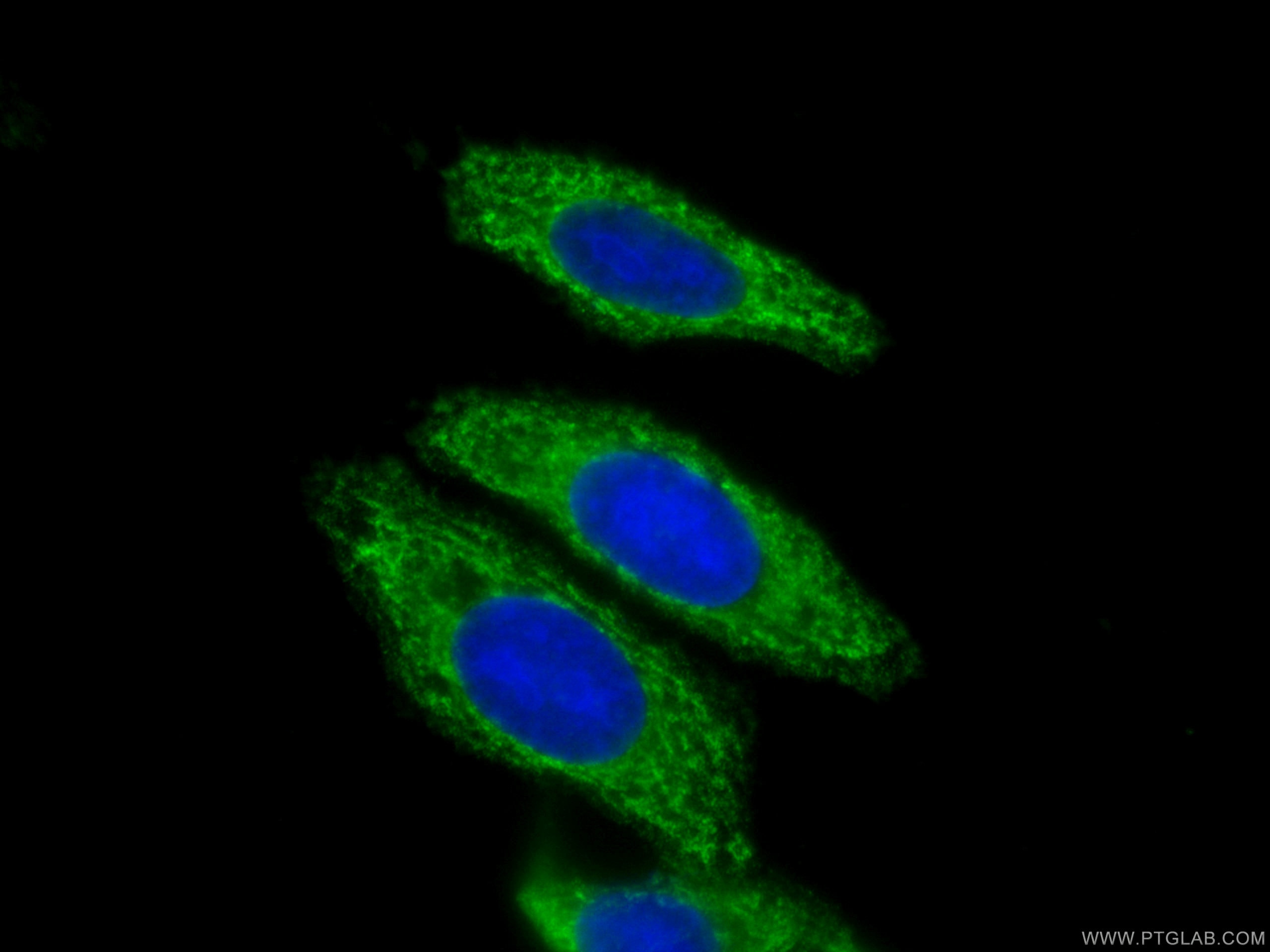Anticorps Monoclonal anti-Syntaxin 16
Syntaxin 16 Monoclonal Antibody for IF
Hôte / Isotype
Mouse / IgG1
Réactivité testée
Humain
Applications
IF
Conjugaison
CoraLite® Plus 488 Fluorescent Dye
CloneNo.
4A9D8
N° de cat : CL488-66775
Synonymes
Galerie de données de validation
Applications testées
| Résultats positifs en IF | cellules HepG2, |
Dilution recommandée
| Application | Dilution |
|---|---|
| Immunofluorescence (IF) | IF : 1:50-1:500 |
| It is recommended that this reagent should be titrated in each testing system to obtain optimal results. | |
| Sample-dependent, check data in validation data gallery | |
Informations sur le produit
CL488-66775 cible Syntaxin 16 dans les applications de IF et montre une réactivité avec des échantillons Humain
| Réactivité | Humain |
| Hôte / Isotype | Mouse / IgG1 |
| Clonalité | Monoclonal |
| Type | Anticorps |
| Immunogène | Syntaxin 16 Protéine recombinante Ag27926 |
| Nom complet | syntaxin 16 |
| Masse moléculaire calculée | 37 kDa |
| Poids moléculaire observé | 37 kDa |
| Numéro d’acquisition GenBank | BC019042 |
| Symbole du gène | STX16 |
| Identification du gène (NCBI) | 8675 |
| Conjugaison | CoraLite® Plus 488 Fluorescent Dye |
| Excitation/Emission maxima wavelengths | 493 nm / 522 nm |
| Forme | Liquide |
| Méthode de purification | Purification par protéine G |
| Tampon de stockage | PBS avec glycérol à 50 %, Proclin300 à 0,05 % et BSA à 0,5 %, pH 7,3. |
| Conditions de stockage | Stocker à -20 °C. Éviter toute exposition à la lumière. Stable pendant un an après l'expédition. L'aliquotage n'est pas nécessaire pour le stockage à -20oC Les 20ul contiennent 0,1% de BSA. |
Informations générales
Syntaxin 16 (STX16), also named as SYN16, belongs to the syntaxin family. Syntaxins are target membrane SNAREs(Soluble NSF attachment protein receptors) which are membrane components that determine the specificity of the docking and fusion of vesicles to target membranes. STX16 is localized to the Golgi apparatus.
Protocole
| Product Specific Protocols | |
|---|---|
| IF protocol for CL Plus 488 Syntaxin 16 antibody CL488-66775 | Download protocol |
| Standard Protocols | |
|---|---|
| Click here to view our Standard Protocols |


